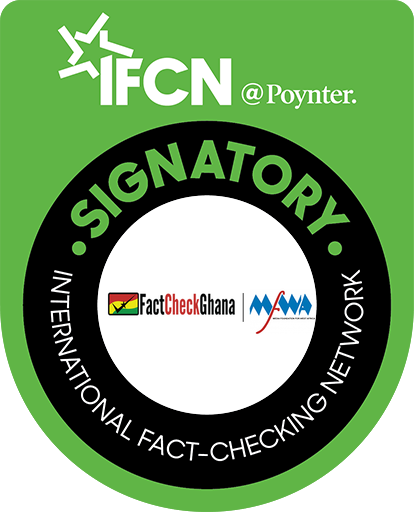President Mahama, in a letter titled “The Homestretch” to his teeming supporters and Ghanaians in general, pointed to how humbled he is to have been given the opportunity to govern and thanked Ghanaians for the support. Of course he made some claims, four of which were fact-checked by MFWA’s team. Below are the claims and their details.
Claim 1: Students’ loans have been reviewed upwards with an enhanced package for fresh students.
Verdict: Entirely True
Explanation: On October 20, 2016, President John Dramani Mahama announced an upward review of existing credit facilities for tertiary students under the Students Loan Trust Fund (SLTF). Specifically, after a recent board meeting, the SLTF announced in September 2016 that the minimum amount currently being disbursed to students has been increased from ¢650 to ¢1,000 per 1 academic year. Also, the maximum amount has been increased from a ¢1,600 to ¢3,000.
It is also true that the SLTF has recently embarked on several reforms to make loan packages more accessible and flexible to new entrants. Some of these include the easing of stringent guarantor requirements and the diversification of the guarantor base.
Claim 2. The United Nation’s Human Development Index puts our nation within the Medium Human Development category, ahead of our neighbours like Cote D’Ivoire and Nigeria.
Verdict: Mostly True
Explanation: Ghana with a 2015 HDI value of 0.579 and rank of 140 is indeed in the Medium Human development category though it is the least ranked African country in that category and not even among the first 10. That notwithstanding, it is true that Ghana’s ranking and value are higher than that of Nigeria (152) and Cote D’Ivoire (172). These two are also grouped in the low human development group.
Claim 3: Ghana is currently ranked as the 7th least corrupt country in Africa, and it is an established fact that the NDC’s worst record in the Transparency International’s anti-corruption league table, over the years, is better than the NPP’s best record while in office.
Verdict: Half True
Explanation: Transparency International (TI) has since 1995, published its Corruption Perceptions Index (CPI) every year ranking countries on perceived corruption. It is true that Ghana with a score of 47 is currently ranked 7th in Africa, performing far better than most African countries.
However, before any further analysis could be made on Pres. Mahama’s claim it must be stated that there’s a challenge in comparing CPI score before and after 2012. This is because the CPI since 2012 has been calculated using an updated methodology that was fundamentally different from the earlier one. An earlier fact-checking report discusses this a bit more.
Incidentally, the NDC recent record (2009=3.9; 2010=4.1; and 2011=3.9) under the old CPI methodology show’s that their worst score (3.9) was the same as the NPP’s best score (3.9) recorded in 2002 and 2008.
The NPP’s worst CPI record was in 2003 and 2006 when Ghana scored 3.3 on the index. This score is again equal to what the NDC under Rawlings scored in 1999. So though the NDC has on average undoubtedly performed better on Transparency International’s CPI, their “worst record” is at best equal and NOT better than the “best record” of the NPP.
Claim 4: The producer price of cocoa has been increased to an all-time high.
Verdict: Mostly True
Explanation: Currently, the producer price of cocoa stands at ¢7,600 per tonne from a ¢6,800 per tonne set for the previous 2015/2016 cocoa season. This meant that a cocoa producer in Ghana now collects ¢475 for every 64kg bag of cocoa sold. This figure, it is true is an all-time high but only because producer prices of cocoa in Ghana, like on the international market, have been generally increasing for more than two decades now.
However, from our checks, the NPP government oversaw a 572.38% increase in the producer price of a 64kg bag of cocoa from ¢15.17 in 2000/01 to ¢102 in 2008/09. The NDC government meanwhile has just managed a 365.68% increase from ¢102 to the current price of ¢475.



